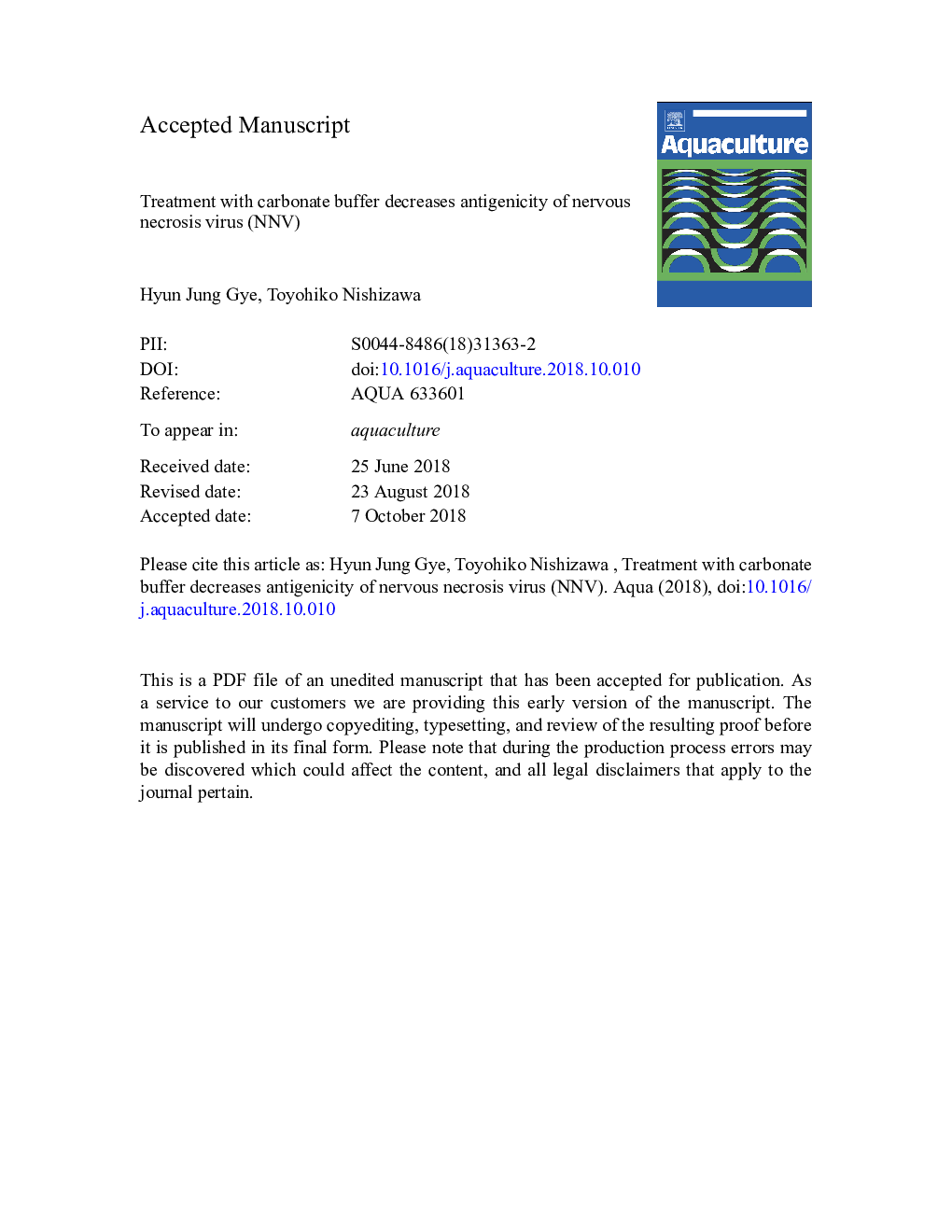| Article ID | Journal | Published Year | Pages | File Type |
|---|---|---|---|---|
| 11908773 | Aquaculture | 2019 | 13 Pages |
Abstract
Antigens are commonly immobilized after suspending them in an alkaline buffer such as carbonate buffer (pHâ¯9.6) for enzyme-linked immunosorbent assay (ELISA). The objective of this study was to determine the effect of 100â¯mM carbonate buffer (pHâ¯9.6) on antigenicity of nervous necrosis virus (NNV) known to be pathogenic to fish. ELISA values of NNV antigens immobilized using carbonate buffer (pHâ¯9.6) wereâ¯â¤â¯0.23, significantly lower than those by dry immobilization (ELISA values of approximately 1.0). NNV antigenicity was drastically decreased by treatment with carbonate buffer (pHâ¯9.6), but not by treatment with Tris-HCl buffers at pHâ¯8.0 or pHâ¯9.6. Thus, the decrease of NNV antigenicity was due to carbonate/bicarbonate, not pH. NNV infectivity was also decreased after treatment with carbonate buffer (pHâ¯9.6). The anti-NNV serum could recognize conformational structures of NNV surface protrusions related to NNV infection. Therefore, NNV surface protrusions might have been denatured by treatment with carbonate buffer (pHâ¯9.6). Results of this study also demonstrate that coating NNV antigens by buffer immobilization might be far from practical. However, the sensitivity of ELISA detecting NNV antigens can be greatly improved by dry immobilization of antigens.
Related Topics
Life Sciences
Agricultural and Biological Sciences
Aquatic Science
Authors
Hyun Jung Gye, Toyohiko Nishizawa,
